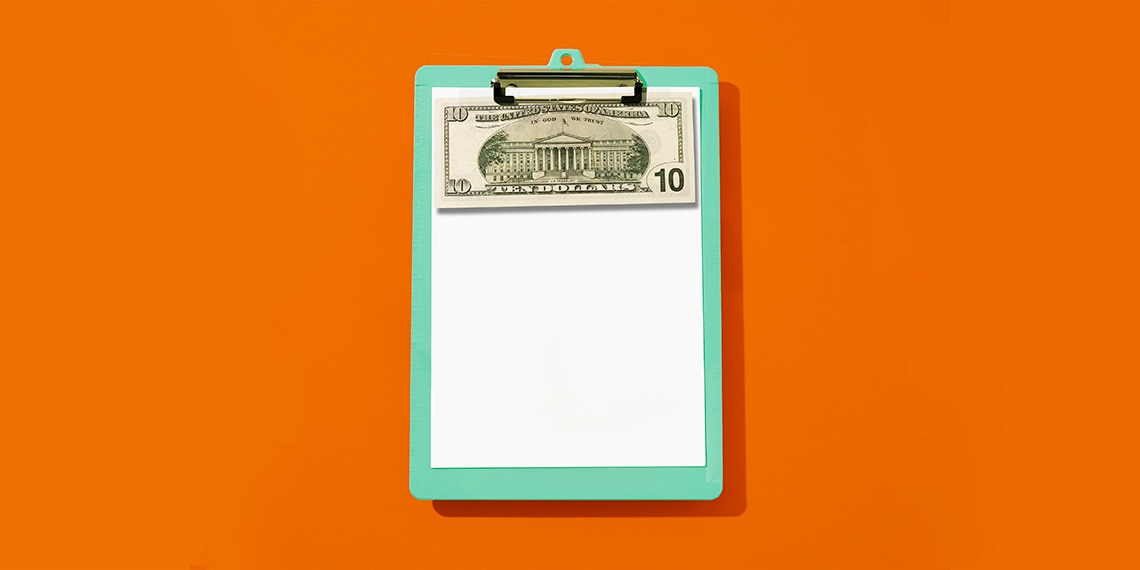
The coronavirus pandemic is, at least in recent times, unprecedented in its profound impact on our collective health and our economy. While the global nature of COVID-19 and the resulting societal shutdowns aimed at slowing infections are undoubtedly unique, the economic recession we have now entered is something we have seen before.
Recessions come about when there is a significant decline in activity across the economy, including higher unemployment and lowered incomes and wages. The average recession lasts just over 17 months, and there have been 33 of them in the United States since 1854.
How long our current economic downturn will last and how severe it will be remains an open question. Since we can’t individually control public health or the global economy, a concrete and proactive step we can all take is to prepare our finances for a recession—whether it ends up being a short or long one. Here’s how to do it.
Cut Living Expenses as Much as Possible
Living within your means is always important. But the necessity of it is even more acute when a recession makes steady employment and income less certain. Fortunately, the basics of budgeting are straightforward. Start by meticulously analyzing what you spend each month by reviewing receipts and recent credit card and bank statements. Then assess what is truly a necessity and what isn’t; this will guide what expenses need to be cut.
“In many cases, people are paying for ongoing, monthly subscription dues that might seem minor but add up over time, like streaming music or TV services that aren’t getting much use,” says Nick Defenthaler, a partner at the Center for Financial Planning in Southfield, MI. As a general rule of thumb, financial experts say you shouldn’t devote more than 30% of your income to discretionary items. If you need help going through expenses to find areas to cut, free and low-cost apps like Mint and You Need a Budget can make the process easier.
Build an Emergency Fund
The phrase “cash is king” is never more true than during a recession. That’s because having up to 12 months (though some experts advocate having a year-and-a-half-plus) of living expenses in an easily accessible account means that you’ll have the money to take care of your family in case you lose your job.
COVID-19-related furloughs and job losses have been commonplace, with over 33 million Americans filing for unemployment in March and April alone. If you don’t have money stashed away for emergencies, calculate your monthly expenses, set a goal for how many months of expenses you want in your fund, and then set up automatic savings from each paycheck. “The best way to accumulate savings, whether it’s within your 401(k) or your checking or savings is to automate your deposits,” says Defenthaler. “Having even $25 a paycheck going into this separate account via direct deposit will add up over time.”
Don’t Stop Investing
Charts tracking the COVID-19 performance of the stock market are full of precipitous drops and rebounds, often from one day to the next. The major indices (like the Dow Jones Industrial Average and S&P 500 Index) have fluctuated by hundreds of points, though overall, the stock market is well below its early 2020 highs.
Market fluctuations can be unnerving and may lead many to consider pulling their money out of the markets entirely. That’s understandable, but it is counterproductive because it locks in losses and doesn’t position you to benefit from the inevitable economic rebound. After all, one benefit of stock market losses is that stocks are now relatively cheap to purchase. “This market affords us a fantastic opportunity to invest more money into our 401(k)s and 403(b)s,” says Mike Scarborough, a financial advisor and CEO of Maryland-based Oak Wealth Partners Inc. “This allows us to buy those investments that are in our accounts at lower prices and ultimately, when the market returns, you will be rewarded for continuing to invest in those accounts.”
But Revisit Your Investment Strategy
While it’s best to remain committed to stock market investing, that doesn’t mean you shouldn’t analyze and potentially adjust your portfolio. Over the past few years, as the stock market has delivered consistent returns, there was little motivation to change asset allocation or think about diversification. Market volatility has a way of highlighting investors’ actual tolerance for risk.
How to best give your portfolio a tune-up is a good topic to discuss with your financial advisor, particularly as you consider long-term goals. “While you and your financial advisor should periodically assess and carefully consider rebalancing your portfolio, it’s essential to remind yourself that you’re not playing the day trader’s game,” says Greg Klingler, director of wealth management at the nonprofit Government Employees’ Benefit Association. “You’re investing for the long run and your long-term financial security.”
Reevaluate Your Career and Financial Goals
A common reaction to COVID-19 has been to ask hard questions about everything from life priorities and goals to career objectives and money.
● How do I want to spend my workdays?
● Is my career sustainable over the long term?
● Does my definition of wants and needs—and how I spend money on both—still apply?
These are all good questions to ask because they can help you make decisions about how to invest both your money and your time. One effective way to start this process is to write down your new goals. Once you have identified your objectives, you can begin to devise a plan to achieve them.
A former editor at Los Angeles magazine, Chris Warren has had work appear in publications ranging from Institutional Investor and Forbes to National Geographic Traveler, Oxford American and Greentech Media.

